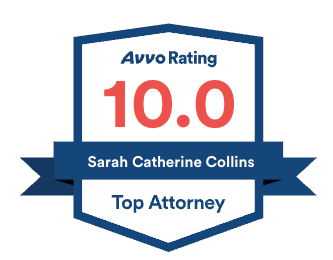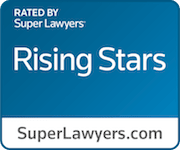The Virginia Landlord and Tenant Act Pre-Establishes and Defines Virginia Tenant Rights.
At the Manassas Law Group, our experienced Prince William County civil litigation attorneys have been resolving legal disputes among the citizens of Virginia for generations, including landlord-tenant law.
Whether you are a business owner, or a resident seeking improvement on your property, landlords and tenants rely on a network of contracts and legal agreements to structure and define their relationship. Whether you are a landlord or a tenant, you deserve access to high-quality legal counsel when disputes arise.
It should be noted that the Virginia Landlord and Tenant Act (VRLTA) applies to all residential tenancies unless the landlord is eligible to opt-out, which must be stated in the written lease. The VRLTA also applies to stays in motels, hotels, and boarding houses if the tenant has been renting for more than 90 days, or has a written lease for more than 90 days. If you are unsure if your rental is covered by the VRLTA, contact an attorney.
In this post, our Manassas landlord-tenant law attorneys have broken down the Virginia tenant rights as established by the Virginia Landlord and Tenant Act, as well as some helpful tips to make your renting experience pleasant.
 VRLTA: Lease Agreement Rights in Virginia
VRLTA: Lease Agreement Rights in Virginia
Leases are usually if not unanimously required before you move into a rental property.
A lease is a contract stating what the landlord will provide, and what you as the tenant will be responsible for. When you are signing a lease, be sure you are aware of all it requires of you, because the law will hold you and your landlord to the terms of the lease.
Important Lease Terms for VA Tenant Rights
Pay careful attention to the following items on your lease agreement, as it will make it easier to determine your Virginia tenant rights:
- The monthly rent amount
- How much the security deposit will be, if there is one
- What day the rent is due and when it is considered late
- How much is the late fee if you are late with a payment
- How long the lease runs; whether it is month to month, six months, or a year
- How many days advance notice you have to give if you plan to move
- Which utilities are covered in the rent
- What appliances are provided by the landlord
- The process for requesting repairs
- Any specific rules or other charges
The majority of landlords have leases to simplify legal matters and reduce the risk of disputes. However, there is no requirement that anything be in writing. If there is no written lease and you simply pay rent once a month, this is a month-to-month tenancy. You or your landlord can end the tenancy with 30 days’ notice. Virginia tenant rights also require your landlord to give 30 days’ notice to raise your rent.
Tip: Virginia considers tenants who have no lease and who don’t pay rent to be “tenants at sufferance”. The person letting a tenant at sufferance live at their residence does not need a reason to evict them, and do not have to take these tenants to court for eviction. In other words, if you do not pay rent, Virginia tenant rights do not apply to you.
Special Virginia Tenant Rights for Victims of Domestic Abuse
Virginia allows victims of domestic violence to enter into a rental agreement under a special law.
The most likely scenario is as follows:
First, you have been living with someone who abuses you. Your name is not on the lease, but you have been living there. Next, you obtain a final Protective Order in which the judge orders the abuser to stay away from you and gives you exclusive use of the rented property. From here, you can give a copy of that Protective Order to the landlord if you want to continue living there, along with an application to become a tenant. To qualify, you must do this within ten days of receiving the Protective Order.
If the landlord accepts your application, you will become an authorized tenant. A landlord must write a letter of rejection, when rejecting an application.
If you decide not to become a tenant on that property, you must move out within 30 days of receiving the Protective Order.
Security Deposits and Tenant Rights in Virginia
Before you move in, you will probably be required to pay a security deposit to your landlord. Virginia tenant rights dictate that this cannot amount to more than two months’ rent. Your landlord will hold on to this money until you move out to cover any outstanding debt or damage to the apartment. If, when you move out, you don’t owe any money and the premises are clean, the deposit will be returned to you.
The landlord has a right to withhold a reasonable portion of the security deposit for unpaid utilities. They must give you notice of their intent to withhold this amount. If you can provide proof that you paid these utilities, Virginia tenant rights require the landlord to pay the security deposit back in full.
Tip: As soon as you move into a rental property, make a list of all the damages already present. Take pictures. Give a copy to the landlord and keep one for yourself. That way, you have a record of the property’s condition when you moved in.
Tenant Rights: Receipts and Utilities
Virginia tenant rights allow you to get water and sewer service in your name from the local public utility. However, they may require a:
- Letter from your landlord that authorizes the city to put utilities in your name, and
- Security deposit equal to three to five months’ worth of water and sewer charges. If you have written proof that you are receiving government need-based rental assistance, they cannot ask for this deposit.
The utility company can use this deposit to cover any money you still owe them when you move out. If your deposit does not cover your debt, they can place a lien on your landlord’s property.
When a tenant pays rent by cash or money order, Virginia tenant rights require landlords to provide a receipt upon request from the tenant. This is true whether or not your written lease mentions receipts. You should always ask for a receipt if you pay rent by cash or money order.
Tenants can also request an accounting of all charges from the landlord and the payments they have made. Virginia requires the landlord to give tenants who make this written request a statement showing all charges and payments over the entire tenancy, or over the last 12 months, whichever is shorter. The landlord must provide this within 10 business days of receiving the request.
Virginia Tenant Rights: Repairs and Maintenance
Landlord Obligations in Virginia
Virginia tenant rights require landlords to do the following unless properly agreed otherwise:
- Follow building and housing codes
- Make all repairs needed to keep the property livable
- Keep common areas clean and safe
- Keep all electrical, plumbing, sanitary, heating, ventilating, or air-conditioning supplies they provide in good working order. This includes a carbon monoxide alarm installed by the landlord.
- Supply water, hot water, air conditioning if provided, and heat in season. The exceptions to this rule are if the tenant alone controls the heat, air conditioning, or hot water, or if a utility company provides these utilities to the tenant on a separate meter.
- Maintain the property so as to prevent the growth of mold
- Promptly get rid of mold, should any grow.
- Prevent or remove rodent infestations
- Keep common areas that multiple tenant households use clean and safe
- Provide and keep up trash containers (except for single-family households).
Tenant Obligations in Virginia
On the other hand, Virginia requires all tenants to:
- Keep the rented space and plumbing as clean as you can
- Make reasonable efforts to prevent the growth of mold, and promptly notify the landlord if mold does begin to grow
- Use all utilities and appliances reasonably
- Get rid of trash
- Do not destroy or damage the property or allow household members or guests to do so
- Do not disturb your neighbors
- Follow the lease and your landlord’s reasonable rules
- Make reasonable efforts to prevent insect or pest infestation and promptly notify the landlord if an infestation occurs.
Tenant Right: Formal Complaint or Notification
Notifying the landlord in writing is always a good practice for tenants to follow.
If your landlord does not make repairs in a timely manner, Virginia tenant rights allow you to take them to court with a “rent escrow” case. If you have reached that point, you need legal help. To use this procedure, you must pay your rent to the court. When the case is finished, the court will release your rent to your landlord.
Then, you fill out a “Tenant’s Assertion and Complaint” form. Make sure you attach a copy of your repair letter to your landlord to this form.
When you fill out this form, you need to decide what you want the judge to do. You can ask the judge to:
- Order repairs completed before the court releases your rent to your landlord
- Order repairs and return some or all of the rent money to you
- Terminate your lease early. The judge can only do this if you request it.
Tip: Never withhold your rent while you wait for repairs. You can be evicted for this. Instead, remain up-to-date on your rent and follow the above procedures.
Ending Your Tenancy
The method of ending your tenancy depends on your agreement with your landlord. If you do not have a written lease but pay rent, Virginia tenant rights require your landlord to give you 30 days’ written notice to end your tenancy. For those who pay rent on a weekly basis, Virginia tenant rights require the landlord to give you 7 days’ written notice. Written leases outline procedures for ending tenancies.
For month-to-month leases, 30 days’ written notice is the standard. If you have a 12-month lease, 30 or 60 days’ notice that you will not be renewing the lease is standard.
Virginia tenant rights allow a tenant to end a tenancy if they suffer any criminal sexual assault or abuse. Even if the lease does not provide for this, Virginia state law does.
If you move out or your landlord evicts you before the lease is up, you could be responsible for rent until the lease ends. For example, if your lease runs through September and your landlord evicts you in May, you will still owe rent for June, July, August, and September. This is only applicable if the property remains empty. The landlord cannot collect rent from both you and another person if they re-rent the property.
If your landlord sells the property you live on, you have the same Virginia tenant rights with the new owner as you did with the original one. The lease will be very important in this situation. Read it carefully to see if it says anything about your rights under a new owner. If the lease says nothing about the sale of the property, your Virginia tenant rights will remain the same.
Contact the Manassas Law Group
Legal disputes involving your home are never easy and are always stressful and even scary. At the Manassas Law Group, we understand how emotionally charged these cases can be. If you’re unsure about your Virginia tenant rights, or if you’re a landlord looking for more information about your responsibilities, contact us at the Manassas Law Group. We have been serving the citizens of Virginia for decades, and we look forward to serving you. Give us a call at 703.361.8246 to arrange a consultation or send us a message online.















